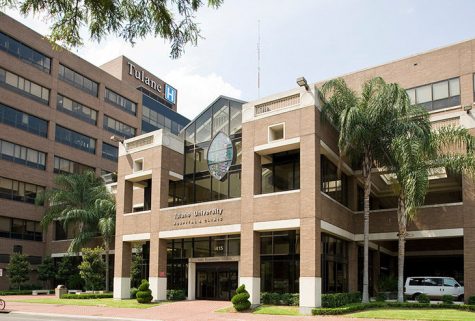
The U.S. District Court for the Eastern District of Louisiana ruled in favor of Louisiana Children’s Medical Center on Wednesday, allowing the acquisition of three Tulane-operated hospitals to proceed. The merger had been halted by the Federal Trade Commission while courts considered the application of federal antitrust laws.
In a 29-page order handed down on Wednesday, U.S. District Judge Lance Africk wrote that the case centered around one central question: whether federal antitrust law applies to private business sales approved by state attorney generals.
He wrote that it does not.
Because Louisiana Attorney General Jeff Landry approved the hospital sale in December, Africk wrote, “the Hospital’s transaction is exempt from the federal antitrust laws and need not comply” with its requirements.
LCMC CEO Greg Feirn praised that ruling.
“We are pleased to announce that the District Court has recognized the value of our partnership with Tulane University and upheld the State of Louisiana’s approval,” Feirn said in a statement.
Tulane spokesperson Mike Strecker said the merger will create 2,300 jobs in New Orleans and across the state.
“Today’s decision is a major step forward in our efforts to grow academic medicine and community healthcare in Louisiana,” Strecker said.
The FTC did not respond to messages Wednesday evening. It is unclear whether it will appeal the ruling.
The FTC has argued LCMC Health and Hospital Corporation of America Healthcare, which owned Tulane’s three hospitals, violated federal law because they did not notify it of the sale.
“Businesses that believe they can flout the law should be on notice,” FTC Chair Lina M. Khan said after the agency filed suit in April. “We will use the full scope of our authority to combat obstruction and to vindicate the FTC’s authority to investigate potentially illegal deals.”
LCMC argued they are not subject to the Clayton Antitrust Act of 1914, a federal law which requires mergers greater than $101 million to be approved by the FTC. The healthcare system claimed a Louisiana state law giving state legislators oversight over healthcare consolidations granted the merger immunity from federal antitrust laws.
Antitrust law aims to prevent unfair monopolization of the market through anti-competitive mergers. The FTC argued it requires companies to file a pre-merger notification before taking action, to be reviewed by the FTC.
On Sep. 27, the courts granted declaratory judgment that the LCMC-Tulane merger was not subject to the federal laws or the penalties for not submitting the merger to the FTC for approval, allowing the acquisition to resume.
The 1980 Supreme Court case Parker v. Brown established the state action doctrine, which invokes principles of state sovereignty to provide that federal antitrust laws are subject to supersession by state regulations.
While the case was decided by the courts, the hospital system was not permitted to close any of the three hospitals or make significant changes to operations and had to maintain all clinical services with sufficient staffing.
The three hospitals acquired are Tulane Medical Center, Tulane Lakeside Hospital and Lakeview Regional Medical Center. The merger leaves only two hospital systems in New Orleans — LCMC and Ochsner Health.
In the next 12 to 24 months, hospital services currently provided at Tulane Medical Center will shift to LCMC Health’s University Medical Center and East Jefferson General Hospital. The Tulane Medical Center building will instead house a nursing program and clinical research programs.
“Academic medical centers provide the most complex and high-quality care and are the birthplace of new treatments and technologies,” Tulane President Michael Fitts said in a press release in 2022. “Joining with LCMC Health will help drive clinical, educational, and economic innovation and growth that improves the quality of life across our entire region.”
Critics of the merger, including National Nurses United, argue that the closing of Tulane Medical Center as a hospital will restrict access to vital healthcare for parts of New Orleans. By decreasing competition in the healthcare market, critics argue the consolidation will also increase healthcare costs to the benefit of corporate healthcare systems and shareholders.
“Consolidation like this means service shutdowns, and anti-competitive business moves like this mean increased prices for our patients, who already struggle to get and afford the care that they need and deserve,” Registered nurse Mea Ratcliff, who works in Tulane’s Transplant Clinic, said in an April press release for National Nurses United.
Strecker also said the ruling paves the way for Tulane to create new research spaces and graduate programs in public health, social work, professional advancement and medicine.
Martha Sanchez and Aidan McCahill contributed to the reporting of this story.


